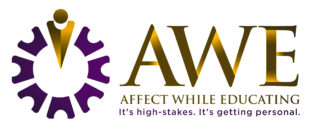 Testing Coach
Testing Coach
The current SAT critical reading section, similarly designed to the ACT critical reading, contains different types of passages and questions than the SAT had in the past. In order to successfully take this test, students must use proper strategies. This includes knowing how to interpret different types of questions. On the current SAT, the types of questions include general/specific paired questions with reference follow-up and main idea questions, as well as, similar question types from the previous SAT. As in the past, the SAT includes author purpose, author tone, detail, inference and vocabulary-in-context questions. Students must familiarize themselves with the nature of the test. Otherwise, each student’s score will not reflect his or her true potential when applying to post-secondary institutions.
Coach: High-Stakes Testing
| Level | Test | Section | Skill Development | Strategy |
|---|---|---|---|---|
| Elementary | STAAR | Reading | Test-Taking, Reading Comprehension | Meta-Cognitive |
| Middle School | ISEE, STAAR | Reading, Writing | Test-Taking, Reading Comprehension, Grammar, Narrative and Expository Writing | Meta-Cognitive |
| High School | English I STAAR, EOC, PSAT, SAT, ACT | Reading, Writing | Test-Taking, Reading Comprehension, Grammar, Persuasive | Meta-Cognitive |
These tables reflect broad types of services. Individual areas of focus are not shown. Those depend on each student’s prior knowledge and mastered skill-sets. The information here is intended to be a general guide for typical services offered. These descriptions are not all-inclusive. Services adjust to current changes in educational requirements.
Meta-Cognitive Strategies
Meta-cognition, a term used by cognitive psychologists. It refers to one’s awareness of his or her own mental strengths and/or limitations. Meta-cognitive strategies help students build up awareness in order to monitor cognitive processes. In other words, student affect (which falls under the soft sciences) shows through in attitude, appreciations, interests, and values. Each of these types of affect play respective parts in the larger meta-cognitive process. Students who receive AWE tutoring develop this type of awareness. When students understand meta-cognitive processes, they become better equipped to take control of academic learning. In this way, students are empowered to make positive choices that directly affect academic outcomes or test results.
Coach: Academics
| Level | Subject | Skill | Activity | Alignment |
|---|---|---|---|---|
| Elementary | Reading | Reading Comprehension | Manipulatives, Artwork, Exam Prep, Assignment Support | TEKS/Common Core Standards |
| Middle School | English Language Arts | Reading Comprehension, Literature and Non-Fiction Analysis | Note-taking, Exam Prep, Assignment Support | TEKS/Common Core Standards |
| High School | English, AP English | Essay Writing, Literature and Non-Fiction Analysis, Research | Note-taking, Exam Prep, Assignment Support | TEKS/Common Core Standards |
| Post Secondary | Writing Composition, Research Courses, IB English: Literature, Language and Literature | Essay Writing, Research | Note-taking, Proofreading Feedback, Literature Review | Human Subject Requirements |
Reading Coach
As a reading tutor, I see how reading comprehension may be difficult for young students. Many skills are needed for them to comprehend text. Students need to be able to sound out words. They also need to follow punctuation and think about what the author is trying to say. While all of this happens, students must keep the meaning of the text straight in their heads. Since this can be a complex process, its all broken down for students. During each lesson, we tackle each challenge, one at a time. Students receive positive feedback after each milestone. It seems to work perfectly. For older students challenged by reading comprehension, special strategies are applied based on individual learning styles.
Writing Coach
As a writing tutor, I see how proofreading is challenging at times for students. They may want someone to edit their  work for them. My approach is different. I empower students to be effective writers which means they edit their own work. This happens because I methodically ask questions over specific sections of their writing. Their responses determine the direction of the writing. During this process, they build writing skills. This didactic exchange is critical. Students learn to improve as writers by reflecting on their own writing, rather than from others editing their work for them. Constructive feedback is key here.
work for them. My approach is different. I empower students to be effective writers which means they edit their own work. This happens because I methodically ask questions over specific sections of their writing. Their responses determine the direction of the writing. During this process, they build writing skills. This didactic exchange is critical. Students learn to improve as writers by reflecting on their own writing, rather than from others editing their work for them. Constructive feedback is key here.
Please note: Some students show the greatest amount of progress, especially success in building up confidence. Typically, this progress involves visual-spatial learners or those who are diagnosed with ADD, ADHD or Autism spectrum disorders. They seem to respond well to one-on-one coaching.
